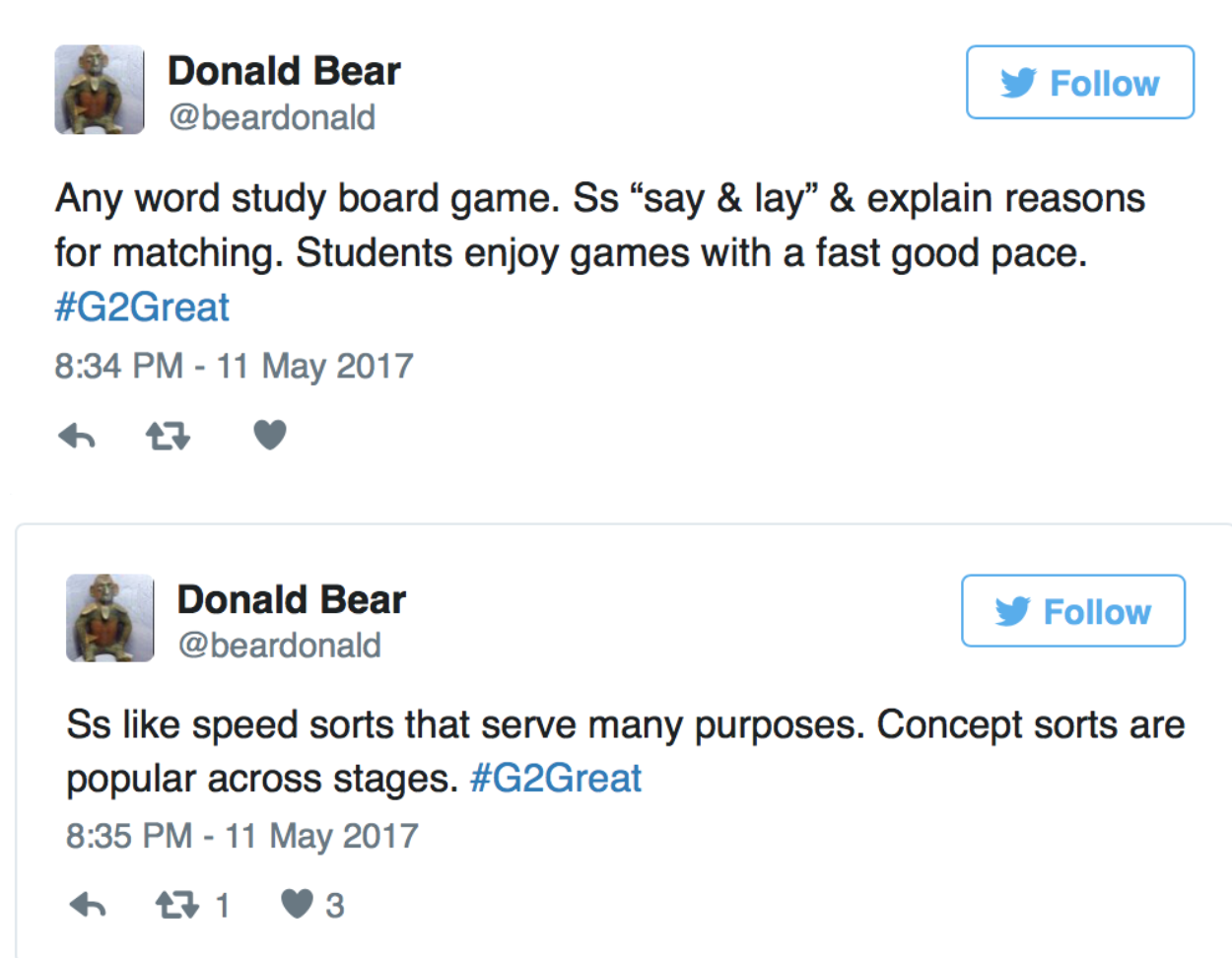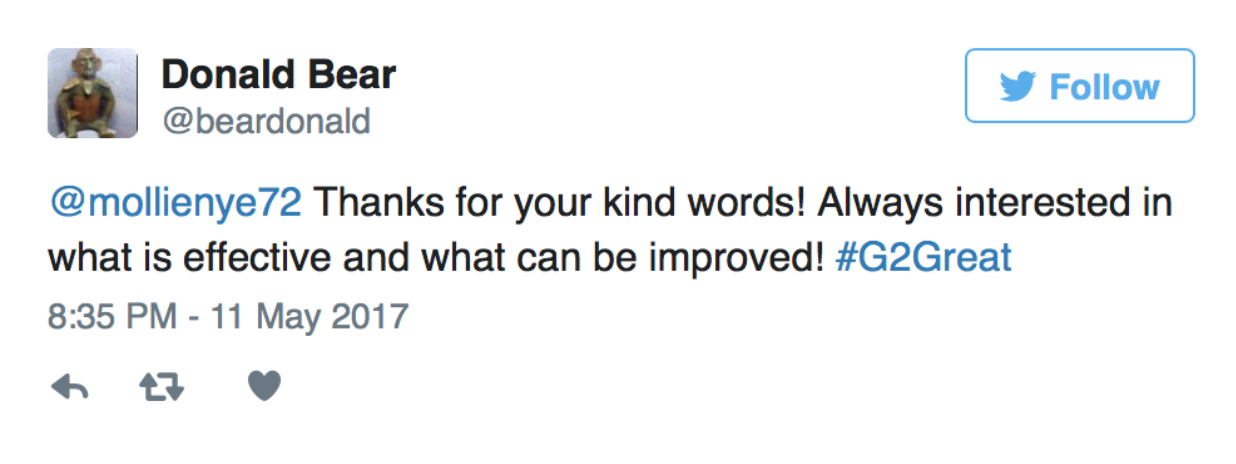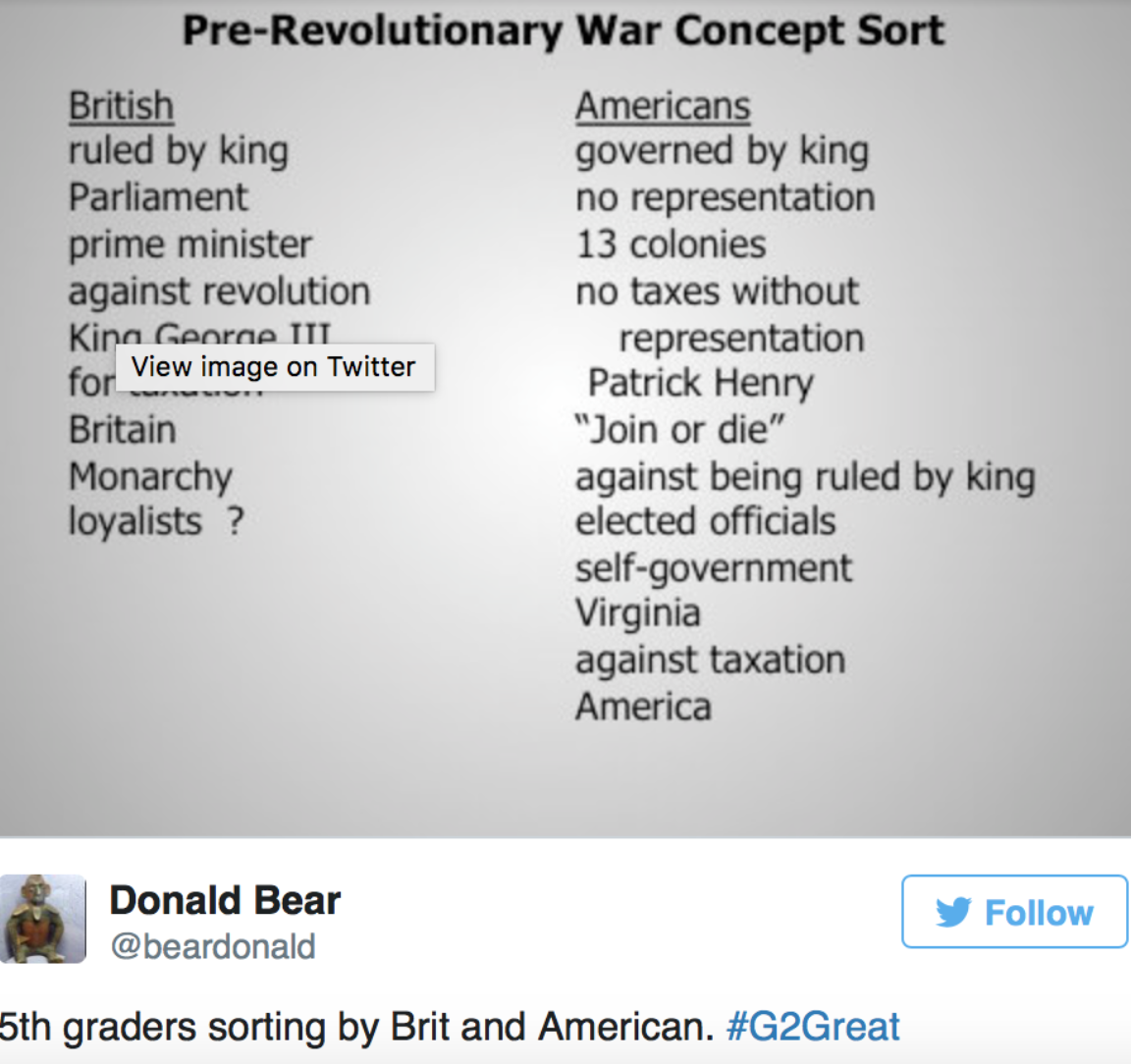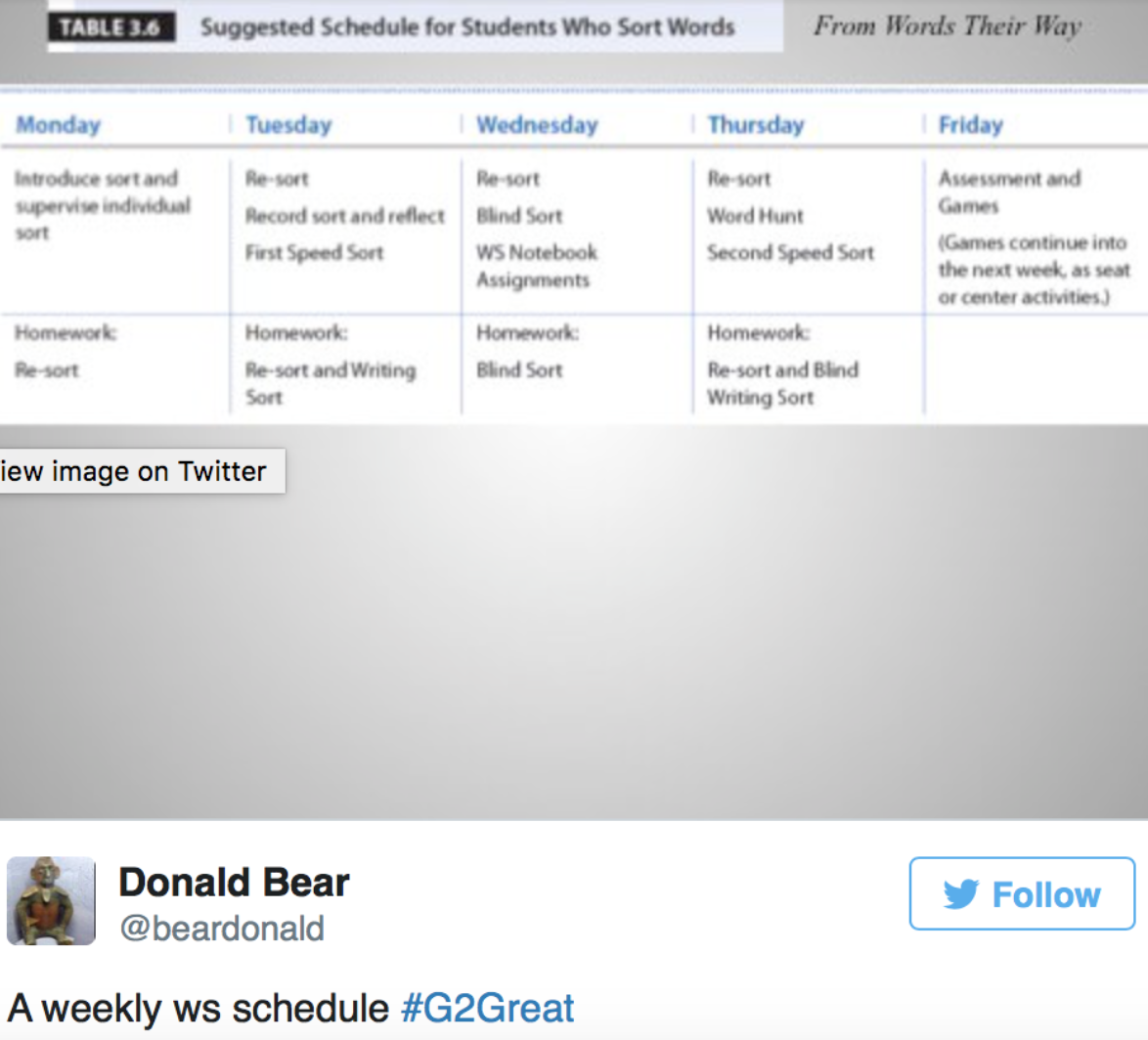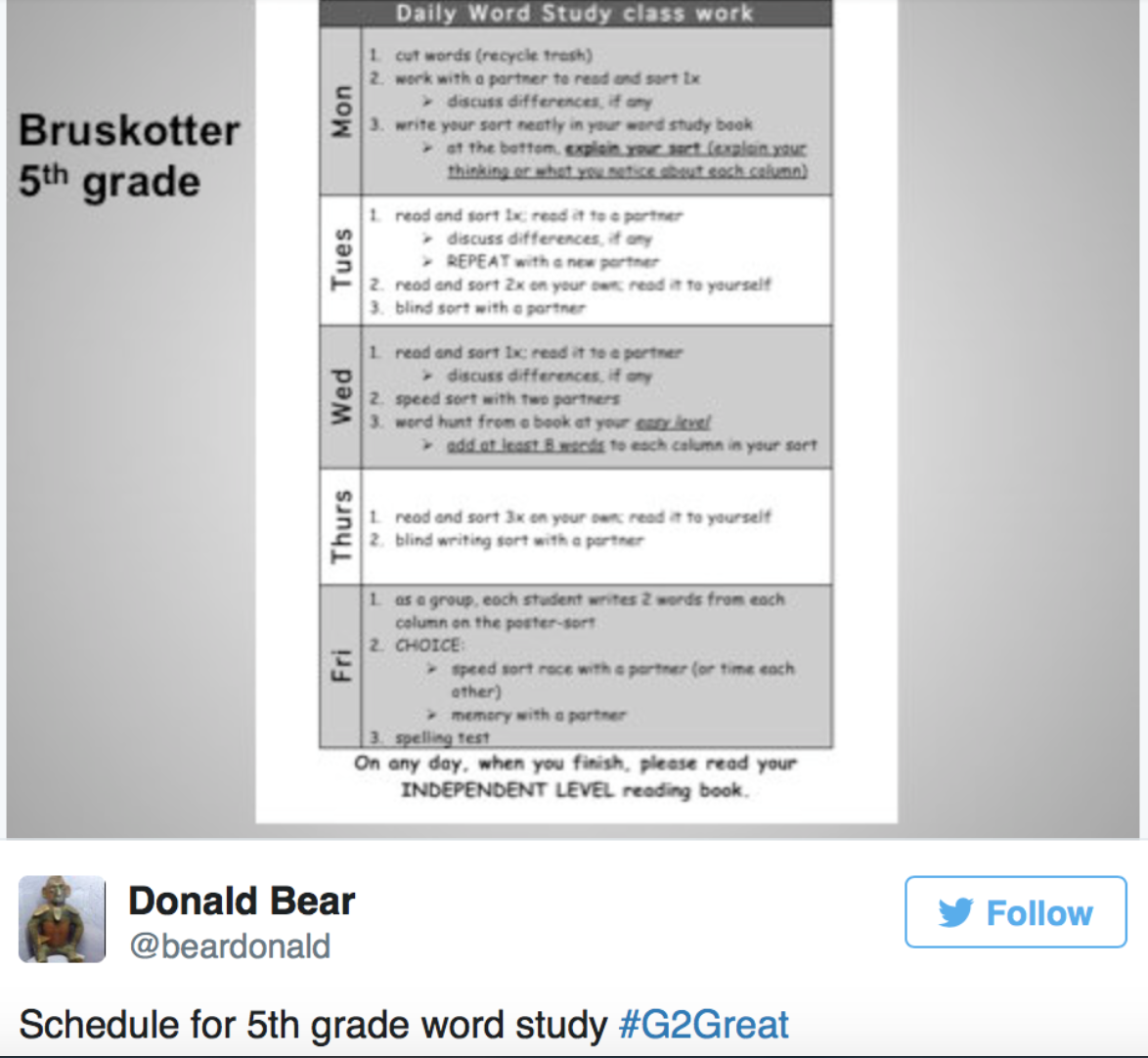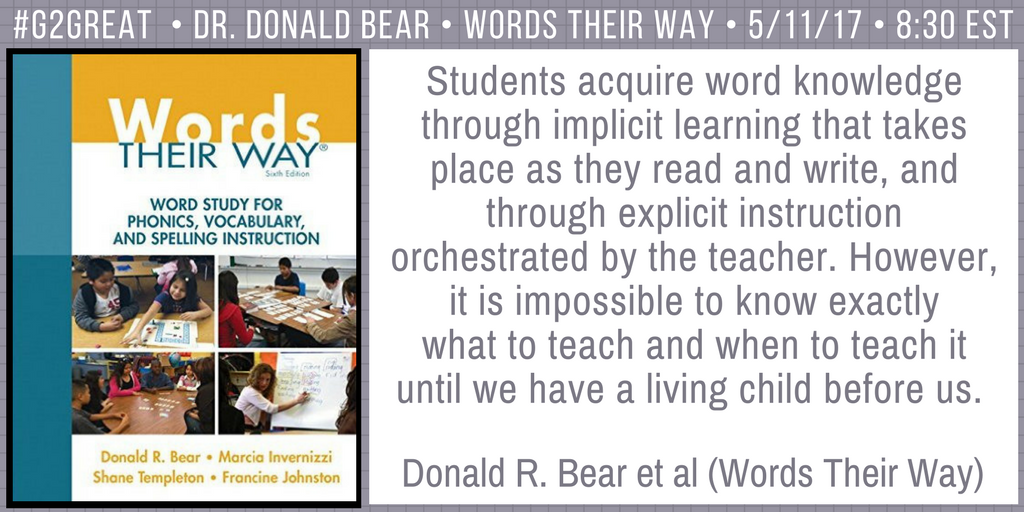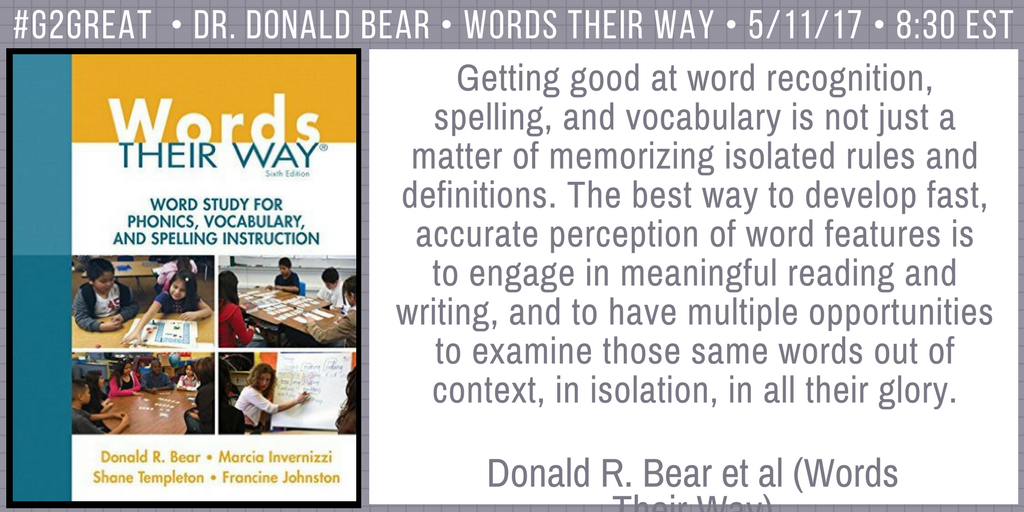By Amy Brennan
On May 11, 2017 #G2Great welcomed my word hero, Donald Bear. Donald Bear joined our chat and he led us through a discussion about word study with students at the center. Words Their Way describes the purpose of word study “…to examine words in order to reveal consistencies within our written language system and to help students master the recognition, spelling, and meaning of specific words.” Words Their Way is a developmental approach to word study inclusive of spelling, phonics and vocabulary. This is interwoven in a balanced literacy approach to literacy and invites students to inquire, manipulate, recognize, spell and understand words.
Students
For students word study is developmental, students move through distinct stages as they learn about words. Using Words Their Way teachers begin with an assessment that resembles a traditional spelling test. The teacher says the word, a sentence with the word in it and repeats the words again. What makes this test different is that the words a carefully selected to identify the developmental spelling stage that the student is in. This is useful because it informs instruction, showing a teacher precisely where to begin word study instruction.
Students engage in inquiry. Students are involved in a hands-on way where they are sorting words and checking them with a partner. They reflect by declaring or stating what they believe the letter, pattern or meaning is based on the sorting and then comparing and contrasting the words in the sort. Students then extend this by engaging in activities at their seats or at home. This can be in a variety of forms such as; a variety of sorting activites, games, cutting and pasting, using a word study notebook or making word charts.
These hands on activities provide for collaboration where students are exploring and discovering words. Students have opportunities to work in pairs, small groups or individual activities. A student centered classroom where word study is part of the balanced literacy approach is a classroom that is alive with discussion and discovery as students learn about words, whether at the alphabet level, pattern, or meaning level.
Teachers
One of the challenges of word study is there is so much to know about words and it is one part of the balanced literacy day. The key for teachers is to approach word study with a sense curiosity about words. Embracing some word joy as you watch students discover words as you guide them will support teaching and learning. Being open to learning with each new sort will allow for students to engage in rich discussion as they consider different rationales for why words are sorted in one way or another. Teachers of word study understand the reciprocal nature of reading and writing as well as the synchrony among reading, writing and spelling development and instruction. Word study therefore cannot only happen during an isolated word study block, but it must be integrated throughout the day. In writing workshop, reading workshop, read-aloud and even the content areas there are opportunities for students to play with the words or features of words they explored in their Words Their Way sorts.
The word study lesson begins with the teacher demonstrating and introducing the sort using key words or pictures. Turning the lesson over to the students, allowing them to inquire about the words, noticing and naming patterns allowing discourse around any possibility related to the phonology (alphabet), orthography (pattern) or morphology (meaning) is where students begin to develop word recognition, spelling, and vocabulary creating a positive impact on their reading.
Parents
Teaching and learning is one profession where every stakeholder around us has experience watching or participating in for at least 12 years of their own lives. Parents and teachers has imprinted in their memories what teaching and learning meant, likely when they recall their memories of their favorite teachers or how they learned spelling. These memories are imprinted into their minds and unfortunately do not account for any later researched ideas about how the brain learns. The fact is that we know a lot more now than we did when we were in school or when our students’parents were in school. Additionally, because it “worked” for one of us does not mean it worked for all of us. That being said, we have to acknowledge that when we talk about learning about spelling we need to provide not only strong professional development for teachers, but also support for parents, knowing their brains will be predisposed to resist these ideas about spelling because they are different than their knowledge of how they learned to spell.
Exposure, experience and time are necessary to change the perspectives of parents so that they can see the benefit in learning about spelling through this developmentally appropriate approach. When parents see the learning, when they see their children experiencing word joy and learning 10 more words rather than one at a time, ideas will begin to change around the teaching and learning of phonics, spelling, and vocabulary.
Donald Bear offers so much in the world of phonics, spelling and vocabulary and shows us just how critical these are to developing strong readers and writers. Be sure to check out Donald Bear’s website as well as some of his favorite websites.
https://www.visualthesaurus.com
More Links for Donald Bear
Words Their Way Series:
http://www.allynbaconmerrill.com/authors/bio.aspx?a=4cffeca9-0ce4-4ca4-aa8d-2c43fdff14a3
to slide(s) to youtube video part I of parent series: Family Word Study Talk March 2017 D Bear; Part I
Donald Bear Bio
http://www2.education.uiowa.edu/html/iae/Pages/bio-bear.html

